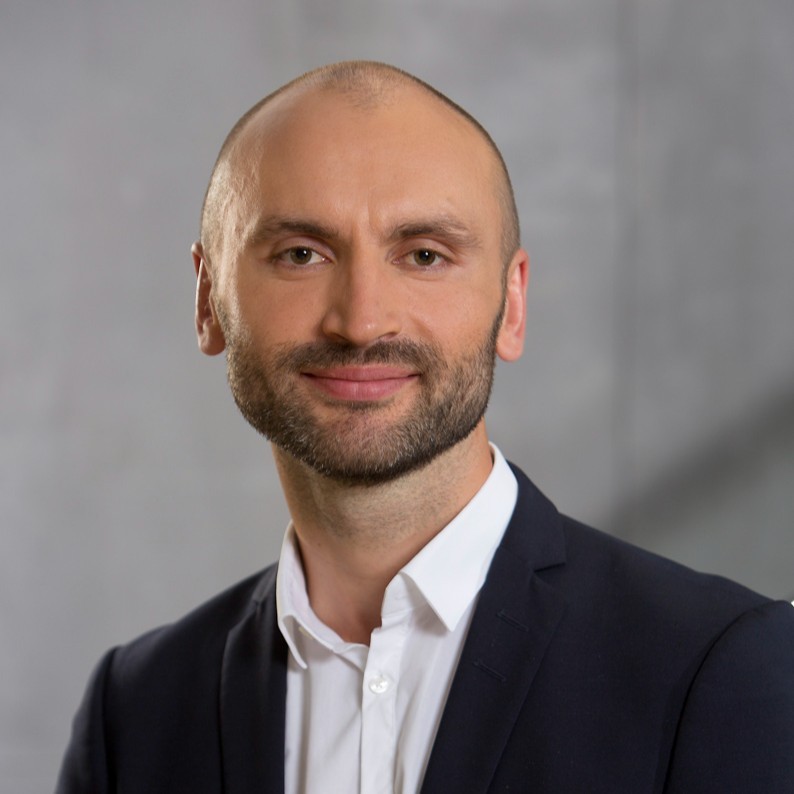Transatlantic biotech Beacon Therapeutics has raised $170 million to potentially bring a rare ophthalmology gene therapy to market in a competition with Johnson & Johnson.
J&J is ahead of Beacon, having fully enrolled its late-stage test of botaretigene sparoparvovec, which it bought from MeiraGTx for up to $415 million last December.
But Beacon believes it could offer patients with X-linked retinitis pigmentosa, or XLRP, a better option. To do so, it’s secured the biotech industry’s 50th private megaround, or nine-figure financing, thus far in 2024.
Both companies aim to treat patients with XLRP, which impairs vision in men and can eventually blind them. There is no FDA-approved drug for the inherited condition.
 Dmitrij Hristodorov
Dmitrij HristodorovBeacon is right on J&J’s heels, and Wednesday’s Series B could get it to pivotal data within two years, Dmitrij Hristodorov told Endpoints News. He’s a general partner at the round’s lead investor, the Dutch VC firm Forbion, and has joined Beacon’s board.
The biotech could file for approval in the US and Europe in 2026, CEO Dave Fellows told Endpoints in a separate interview, and the Series B takes the biotech all the way to early commercialization efforts.
The startup just treated the first patient in its registrational study of the asset, named laruparetigene zovaparvovec. Beacon emerged with $120 million last June to take work forward from the biotech AGTC.
Full-length vs. truncated
Beacon’s experimental medicine might address the “two biggest issues” of the disease: peripheral and central vision, Hristodorov said.
“While we can’t comment on details from competitors because we don’t have the data, and J&J disclosed whatever is publicly available to everyone, it looks like Meira’s drug so far has only shown effects on peripheral vision but not on central vision,” Hristodorov said.
Beacon’s therapy is expected to restore both rod and cone function since it delivers the full-length RPGR protein, while the J&J asset delivers a truncated version, Fellows said. “We haven’t seen any endpoints to support what kind of improvement [J&J’s therapy] may have on cone function,” he said. Restoring both functions could help with night, near and color vision.
Wouter Joustra, another Forbion general partner who is joining the board in conjunction with the raise, conceded that J&J is ahead in the clinic, but believes patients will want to wait to see the data before making a decision. They wouldn’t be able to try both treatments since both use an AAV viral vector to deliver the medicine.
 Wouter Joustra
Wouter Joustra“The time between Meira and Beacon should not be too long. Even though the disease progresses very slowly, you obviously want to have treatment,” Joustra said in an interview. “If there is a gap in between that you can bridge, we believe there will be a much more substantial market share available for Beacon.”
Given the size of J&J, Beacon might need a large pharma to help it compete, but Joustra said Forbion funds its companies “towards their own success” and the newly injected capital gives Beacon “all the means they need to develop this and eventually bring this drug to patients.”
Forbion and Beacon founding investor Syncona previously sold another ocular gene therapy company, Gyroscope Therapeutics, to a large pharma. But the acquirer, Novartis, then scrapped its lead program last fall.
Existing Beacon funder Oxford Science Enterprises took part in the Series B alongside Forbion and Syncona, which said it contributed $42.5 million to the round at a 17.6% higher valuation than what was ascribed to the biotech on March 31. New investors include Advent Life Sciences and TCGX. Beacon also recently sold its manufacturing site in Alachua, FL, to Ascend Advanced Therapies, which will continue producing Beacon’s gene therapy.
Beacon has preclinical programs in dry age-related macular degeneration, for which it expects to start a Phase 1 next year, and cone-rod dystrophy.
Another Forbion-backed ocular gene therapy company, Complement Therapeutics, now expects to enter the clinic next year in the dry AMD space, its CEO Rafiq Hasan said in an email to Endpoints after publication. The company originally expected to enter the clinic this year. Forbion’s investment in the ophthalmology gene therapy field also includes Italy-based AAVantgarde Bio.
Editor’s note: This story was updated to include details on the size of Syncona’s contribution to the round and valuation and to add an adjusted clinical trial timeline from Complement Therapeutics’ CEO.